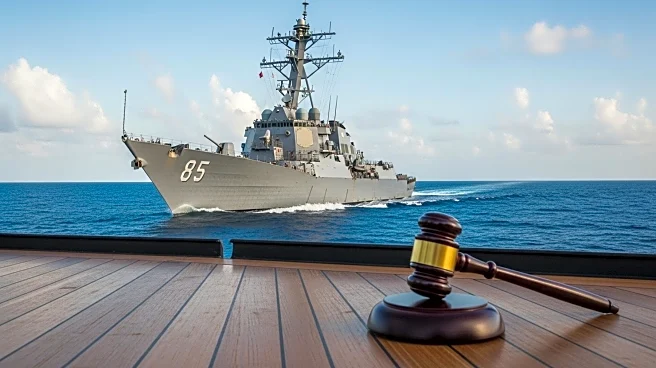What's Happening?
U.S. senators have raised concerns about the legality of recent strikes on alleged drug-trafficking boats in the Caribbean, questioning whether these actions comply with the War Powers Resolution and the Law of Armed Conflict. During a Senate Armed Services Committee hearing, lawmakers expressed alarm over the lack of congressional notification and the absence of an Authorization for Use of Military Force. The strikes were justified by the administration as defensive actions against imminent threats, but legal experts dispute whether the targets meet this definition.
Why It's Important?
The controversy over these strikes underscores the ongoing debate about executive military powers and the need for transparency and legal accountability in military operations. The potential classification of drug cartels as international terrorist groups could expand military engagement in the region, raising concerns about escalation and international ramifications. The issue also highlights the balance between national security and adherence to legal frameworks governing military actions.
What's Next?
Further scrutiny and debate are expected as lawmakers seek clarity on the legal basis for these operations. The administration may face pressure to provide detailed justifications and ensure compliance with existing laws. Potential legal challenges could arise, and the situation may prompt discussions on the scope of military authority and the need for legislative oversight.
Beyond the Headlines
The strikes raise ethical questions about the use of military force in drug interdiction efforts and the potential impact on international relations. The designation of drug cartels as terrorist organizations could shift U.S. foreign policy and military strategy, affecting regional stability and diplomatic ties.











